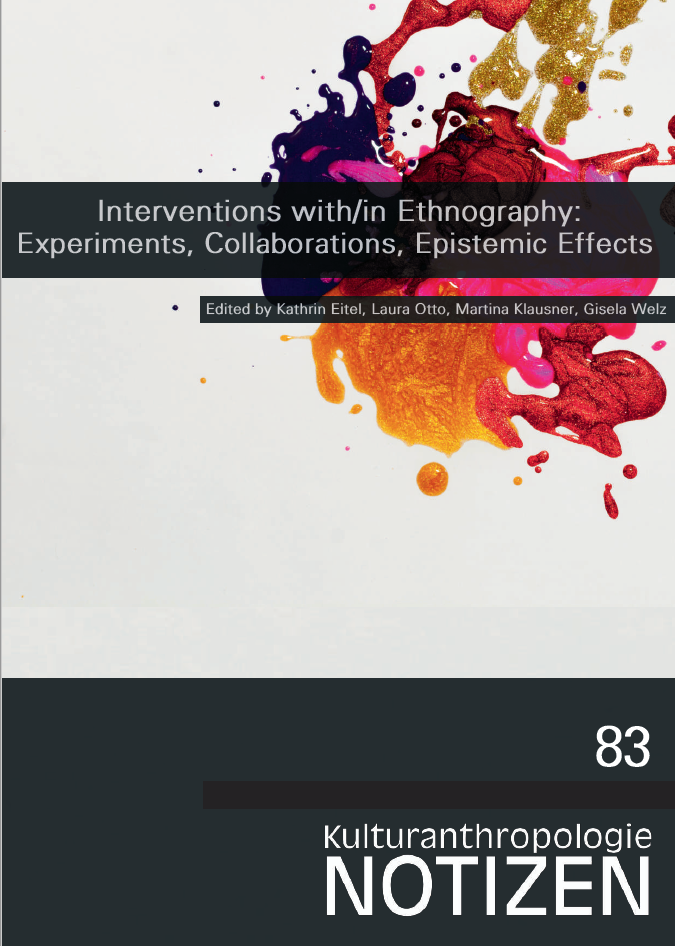Wenn eine Pandemie interveniert
Überlegungen zur ethnographischen Praxis seit COVID-19
DOI:
https://doi.org/10.21248/ka-notizen.83.7Keywords:
ethnography, pandemic, fieldwork, COVID-19, intervention, methodsAbstract
With the onset of the COVID-19 pandemic, numerous researchers in the humanities and social sciences around the globe had to interrupt their research projects, reconceptualize, and rethink their qualitative methodological approaches. COVID-19 and the related governance practices intervene in long-established practices of fieldwork which were understood as ‘normal’ in numerous ways. For ethnographers, this intervention entails the necessity to find new ways of collecting material, and the question of (from) where and with whom research is possible takes on new urgency and reflection. Based on qualitative, guided interviews with ethnographers and blog posts, this paper discusses which research practices and challenges arise under the conditions of the COVID-19 pandemic. We focus on the analysis of implicit assumptions and established quality criteria of fieldwork that become visible and discussable through the intervention of the pandemic, and we reflect on what these findings mean for research in pandemic times.
Downloads
Published
How to Cite
Issue
Section
License
Copyright (c) 2021 Kulturanthropologie Notizen

This work is licensed under a Creative Commons Attribution-NonCommercial-ShareAlike 4.0 International License.




